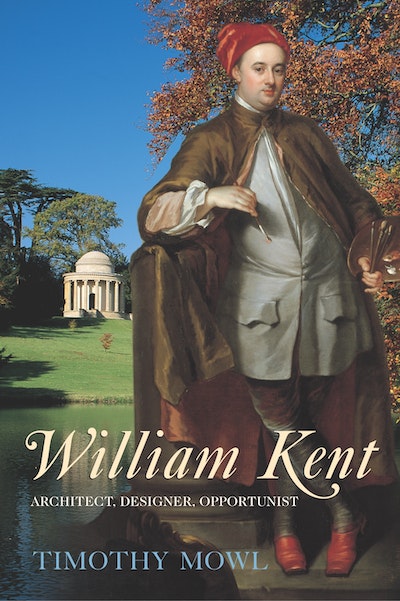- Published: 7 June 2011
- ISBN: 9781845951788
- Imprint: Pimlico
- Format: Trade Paperback
- Pages: 320
- RRP: $34.99
William Kent
Architect, Designer, Opportunist
- Published: 7 June 2011
- ISBN: 9781845951788
- Imprint: Pimlico
- Format: Trade Paperback
- Pages: 320
- RRP: $34.99
Entertaining, provocative and stimulating... opens one's eyes afresh to Kent's all-round genius.
Spectator
[Mowl's] accounts of actual buildings and gardens are full of subjective intensity as well as subtle observations... Engrossing.
Guardian
Mowl has energy and cunning in spades, and he wisely takes the course of making the book more of an assessment of Kent's work and times than an attempt on his life... a glittering knockabout of a book.
Independent on Sunday
Provocative... We tend to admire what received opinion admires, whereas Mowl's book reverses the process, and healthily advises us to 'draw back from praising past culture simply because it happened.'
Sunday Times
Engaging... I was reminded, above all, of Sacheverell Sitwell's evocations of the Baroque. Kent is as much a work of stylistic art. Mowl has a gift for putting his hero's concepts into prose.
Literary Review
Entertaining... Mowl [has] an impressive grasp of politics and patronage, and he writes about architecture, interior decoration and garden design with both authority and liveliness.
Daily Telegraph
Although Kent is an influential figure, he left little in writing but Mowl does a fine job of recreating his life, and personality... An honest account of Kent's genius and failings.
BBC History Magazine
This is a book I've been waiting for. Gloriously opinionated Tim Mowl blasts our pre-conceptions flat revealing his hero to be a joker-genius whose worked changed the direction of English architecture, interior decoration and garden design, sometimes, he admits, for the worse, but often for the better. Here at last is William Kent warts and all.
There is much to admire in Timothy Mowl's fearless approach.
Times Literary Supplement

